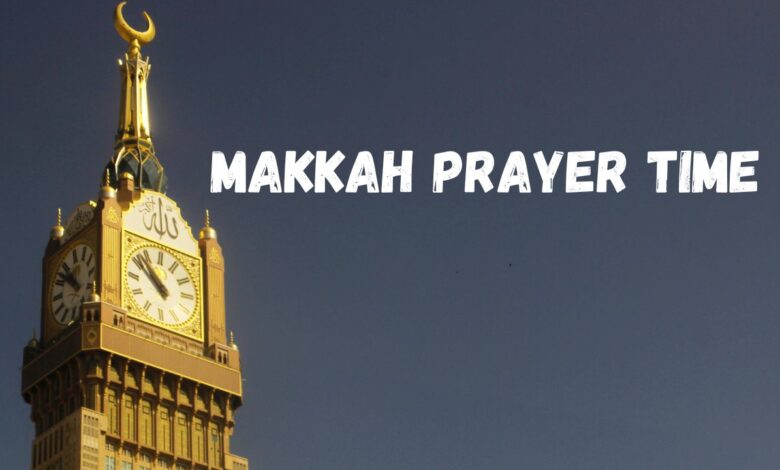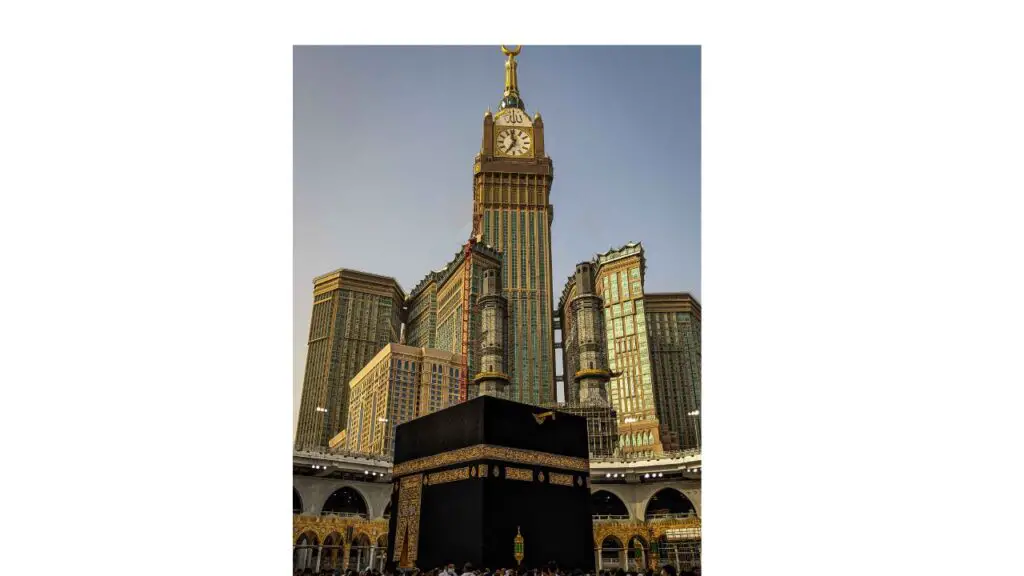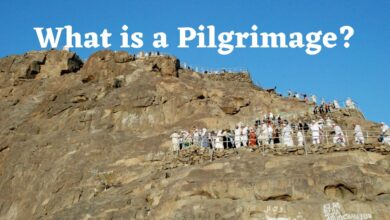

Introduction
Makkah, the holy city in the Kingdom of Saudi Arabia, holds a special place in the hearts of Muslims around the world. It is the birthplace of Islam and home to the sacred Kaaba, the most revered site in the Islamic faith. One of the fundamental pillars of Islam is prayer, and the prayer times in Makkah hold immense spiritual significance for Muslims. In this article, we delve into the importance of Makkah prayer time and explore the rituals and practices that revolve around it.
The Basis of Islamic Prayer
Islamic prayer, or Salah, is a central act of worship in Islam, connecting the believer with Allah (God) and providing an opportunity for spiritual reflection and devotion. Muslims are obligated to perform five daily prayers at specific times throughout the day. These prayers are Fajr (pre-dawn), Dhuhr (noon), Asr (afternoon), Maghrib (sunset), and Isha (night).
The Importance of Makkah Prayer Time
Makkah is the spiritual heart of Islam, and the prayer times in this holy city hold a unique significance for Muslims. For one, the city is the direction of the Qibla, the sacred direction Muslims face during prayer. Muslims worldwide turn their faces towards the Kaaba in Makkah during their prayers, symbolizing the unity and universality of Islam.
The prayer times in Makkah are determined based on the position of the sun and its relation to the horizon. Each prayer time marks a specific moment in the day when Muslims pause their daily activities to engage in prayer, seeking spiritual connection and guidance. Through these daily prayers, Muslims reaffirm their faith and devotion to Allah, fostering a deeper relationship with their Creator.
Makkah prayer time also holds historical significance, as the city has been a place of worship and pilgrimage for Muslims for over 1,400 years. The annual pilgrimage, known as Hajj, brings millions of Muslims from around the world to Makkah, culminating in the performance of various rituals, including prayer at specific times. The experience of praying in Makkah during Hajj is deeply profound for pilgrims, reinforcing the significance of the city’s prayer times.
Rituals and Practices during Makkah Prayer Time
- Call to Prayer (Adhan): The Adhan is a melodious call to prayer that resonates from mosques in Makkah and other Muslim-populated areas. The muezzin calls out the Adhan five times a day, inviting Muslims to engage in prayer and to remember Allah.
- Congregational Prayer: While individual prayer is encouraged, praying in congregation holds additional rewards in Islam. The Grand Mosque (Masjid al-Haram) in Makkah attracts an enormous number of worshippers during prayer times, particularly during Hajj. Praying shoulder-to-shoulder with fellow Muslims from diverse backgrounds fosters a sense of unity and equality among believers.
- Circumambulation (Tawaf): After the obligatory prayers, many pilgrims perform Tawaf, which involves walking around the Kaaba seven times in a counterclockwise direction. This act symbolizes Muslims’ submission to Allah and their unity as a single Ummah (community).
- Invocation (Dua): Makkah prayer time offers an ideal moment for Muslims to engage in supplication and remembrance. After prayers, believers often take the opportunity to make personal prayers (Duas), seeking forgiveness, guidance, and blessings from Allah.
- Spiritual Reflection: Apart from the physical rituals, Makkah prayer time is a time for self-reflection and spiritual growth. Muslims are encouraged to ponder upon their actions, seek forgiveness for their sins, and renew their intentions to live a righteous life.
Conclusion
Makkah prayer time represents a profound spiritual journey for Muslims worldwide. It is a daily reminder of their devotion to Allah and their interconnectedness as a global Islamic community. The rituals and practices observed during prayer times in Makkah offer Muslims an opportunity to strengthen their faith, seek forgiveness, and grow spiritually. As the spiritual heart of Islam, Makkah continues to draw millions of believers to its sacred precincts, leaving an indelible mark on their souls and reinforcing the significance of prayer in the life of a Muslim.
What is Makkah prayer time?
Makkah prayer time refers to the specific times of the day when Muslims in Makkah and around the world perform their five daily prayers (Salah). These prayers are obligatory for all adult Muslims and are performed at specific times, starting from Fajr (pre-dawn) and ending with Isha (night).
How are the prayer times in Makkah determined?
The prayer times in Makkah, like in any other location, are determined based on the position of the sun and its relation to the horizon. Islamic scholars and local religious authorities use astronomical calculations and observation to establish accurate timings for each prayer.
Why is Makkah prayer time important for Muslims?
Makkah is the holiest city in Islam, and the direction Muslims face during prayer, known as the Qibla, is towards the Kaaba in Makkah. Performing prayers at the designated times in Makkah holds great spiritual significance, fostering a deep connection to Allah and the Islamic faith.
What are the five daily prayers observed in Makkah?
The five daily prayers observed in Makkah, as in other places, are:
a. Fajr: Pre-dawn prayer
b. Dhuhr: Noon prayer
c. Asr: Afternoon prayer
d. Maghrib: Sunset prayer
e. Isha: Night prayer
Is there any special prayer time during the Hajj pilgrimage in Makkah?
Yes, during the Hajj pilgrimage, there is an additional prayer time known as “Zuhrayn” or “Jumu’ah al-Akbar.” It takes place on the 9th day of Dhu al-Hijjah, which coincides with the day of Arafat. Pilgrims combine the Dhuhr and Asr prayers during this time.
Can Muslims from different time zones follow Makkah prayer time?
Muslims worldwide follow the prayer times of Makkah to establish a unified global prayer schedule. However, due to geographical differences, the prayer times may vary slightly from one location to another. Many Muslims use local prayer time calculators or Islamic apps to adjust the Makkah prayer times according to their geographical coordinates.
What is the significance of congregational prayer in Makkah?
Praying in congregation holds special rewards in Islam. The Grand Mosque in Makkah (Masjid al-Haram) attracts millions of worshippers daily, especially during Hajj. Engaging in congregational prayer fosters unity and equality among Muslims, promoting a sense of community and brotherhood.
Can women participate in congregational prayers in Makkah?
In Islam, women are encouraged to perform their prayers in congregation, but it is not obligatory for them. During Hajj and Umrah, women can join the congregational prayers in Makkah if they wish, provided they abide by Islamic dress code and guidelines.
Are there specific etiquettes to observe during Makkah prayer time?
During prayer time in Makkah, Muslims should maintain a state of ritual purity (Wudu or Ghusl) before prayer. They should also face the Qibla and avoid any distractions or actions that may invalidate their prayers.
What are the spiritual benefits of praying in Makkah?
Praying in Makkah offers numerous spiritual benefits, including a sense of closeness to Allah, enhanced devotion, and an opportunity to seek forgiveness and blessings. The experience of praying in the holiest city of Islam during Hajj is especially profound and deeply transformative for many pilgrims.





